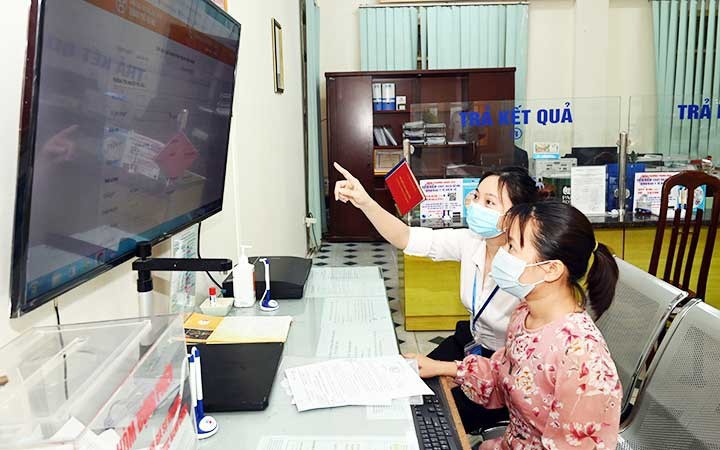Virtual assistants, or chatbots, are artificial intelligence software applications that can communicate with users through natural language, helping to answer questions and support the performance of specific tasks. In the field of public services, virtual assistants not only provide information but also support people to carry out administrative procedures conveniently and quickly.
Applying virtual assistants to online public services brings many practical benefits. First, virtual assistants can operate 24/7, helping people access information and perform services regardless of time. Second, chatbots can handle a large number of requests from people at the same time, reducing pressure on administrative staff and speeding up procedure processing. Finally, the virtual assistant system helps increase transparency, reduce errors and create satisfaction for people when using public services.

Many countries around the world have successfully applied virtual assistants in providing online public services. In Singapore, the virtual assistant “Ask Jamie” has been deployed in more than 70 government agencies, helping to answer people’s questions about administrative, tax, health and education services. In Estonia, a country famous for its digital administration, chatbots play a role in helping people complete administrative procedures online easily.
In South Korea, the Seoul Metropolitan Government has deployed an intelligent virtual assistant to provide information on transportation, welfare programs, and public services. This virtual assistant not only saves time but also reduces errors in providing information, building people's trust in the government.
These examples demonstrate the important role of virtual assistants in improving administrative efficiency and optimizing citizens' experience when using public services.
In Vietnam, although the deployment of virtual assistants in public services is still quite new, some localities have pioneered the application of this technology. Some large provinces and cities such as Ho Chi Minh City, Hanoi, and Da Nang have begun deploying chatbots on online platforms to support people in looking up information and guiding them in performing administrative procedures.
In Ho Chi Minh City, chatbots have been integrated into the Online Public Service Portal to answer questions related to business registration procedures, construction permits and other public services. Citizens can submit questions via the online interface and receive instant responses, reducing waiting time and increasing convenience.
In Da Nang, the city government has deployed a virtual assistant on social media platforms and mobile applications to help answer questions related to household registration, business licenses, and traffic information. This virtual assistant not only serves the people but also helps businesses access public services quickly and effectively.
Despite the many benefits, the implementation of virtual assistants in public services in Vietnam also faces many challenges. One of the biggest difficulties is ensuring the accuracy and relevance of the information provided by virtual assistants. The system needs to be updated regularly to reflect the latest regulations and procedures, avoiding confusion for the people.
Another challenge is that the technology infrastructure in some localities is not yet synchronized, especially in remote areas. This can reduce the effectiveness of virtual assistant systems and limit people's access.
In addition, building people's trust in virtual assistant systems also takes time. To do this, authorities need to ensure information security, avoid personal data leaks and improve the quality of services provided by the system.
To promote the application of virtual assistants in online public services, Vietnam needs a clear and synchronous development strategy. First, it is necessary to invest heavily in technology infrastructure and develop advanced AI solutions that are suitable for the practical conditions of each locality.
Second, it is necessary to build a clear legal mechanism to ensure that the implementation of virtual assistants takes place in a transparent, effective and safe manner. At the same time, raising people's awareness of the utility of virtual assistants also plays an important role in promoting the application of this technology.
Finally, it is necessary to strengthen cooperation with technology enterprises to develop virtual assistant solutions that meet the actual needs of people and administrative agencies.
The application of virtual assistants in online public services is an inevitable trend in the digital age. With the outstanding benefits that this technology brings, from improving administrative efficiency to optimizing people's experience, virtual assistants promise to become an important tool in modernizing administration in Vietnam. Although there are still many challenges, with the efforts and consensus of all levels of government, virtual assistants will contribute to building a smart, transparent and convenient public service system, better meeting people's needs in the digital age./.






































Comment (0)